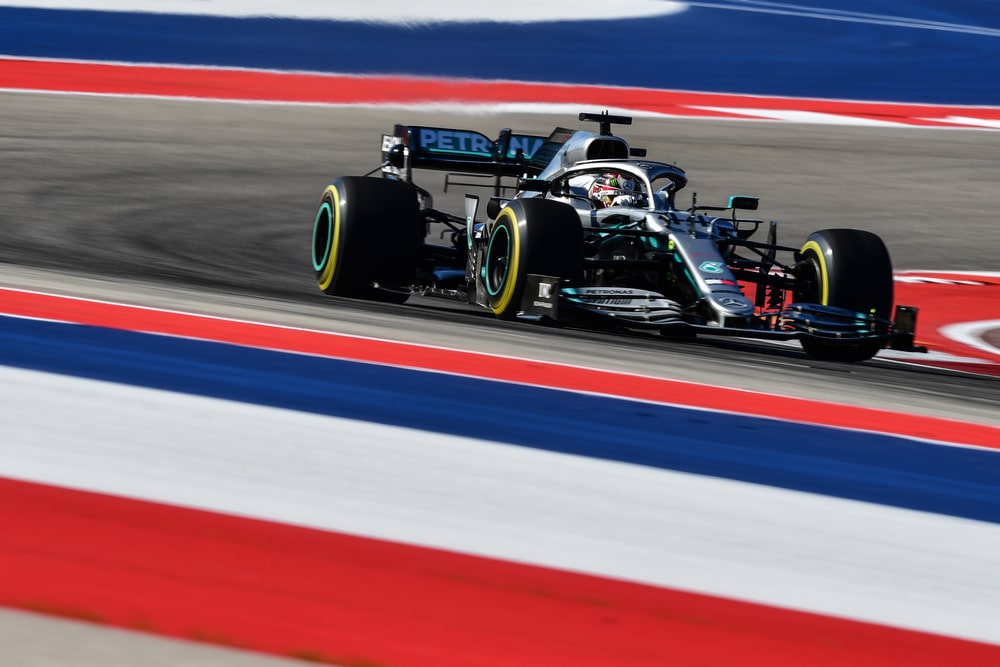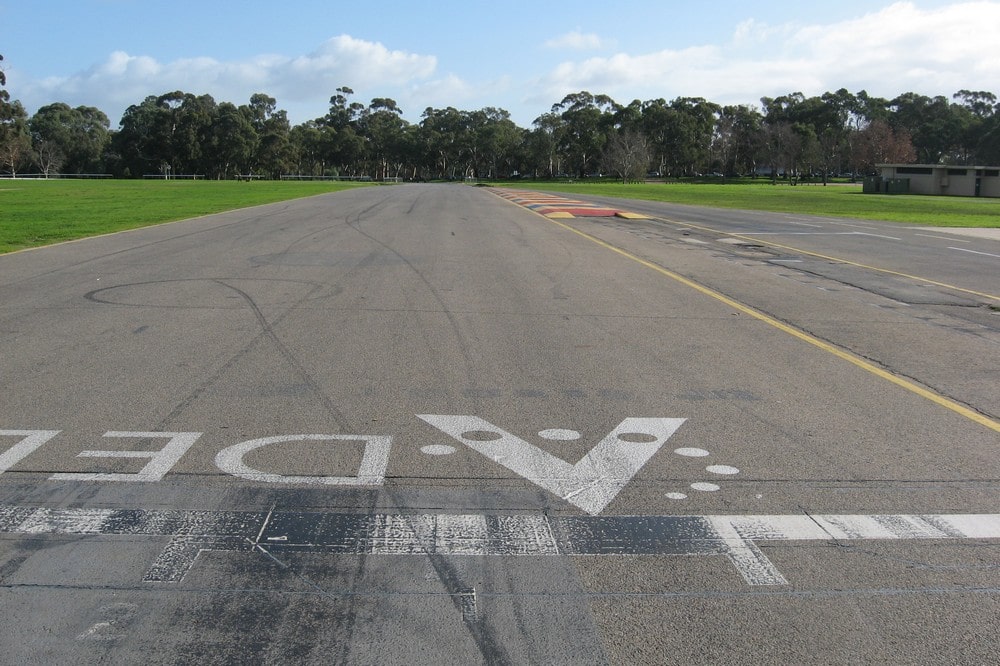
The record-breaking schedule for the 2022 F1 season has been revealed, featuring 23 races. Some last-minute changes are being made to the circuit that hosts the US Grand Prix to address issues brought forward by MotoGP. F1’s medical car driver will likely miss additional races in the closing half of the season due to vaccination requirements. Catch up on all of the latest headlines for this week in F1.
The calendar for the 2022 F1 season has been released and features a number of changes. Bahrain will be the season opener again next year, as Australia opts to take a slot in early April after the Saudi Arabian Grand Prix, which has been moved to its originally planned position early in the calendar. Australia, Canada and Singapore return to the calendar, having been skipped for the past two seasons, while Miami is set to host their inaugural event in May. Imola is officially on the calendar, having only been a late edition in 2020 and 2021, while China is absent for the foreseeable future, with no plans to return to the venue in Shanghai. The calendar features 23 races from March 20 to November 20, with 7 back-to-back weekends and 2 triple headers in the second half of the season.
| Bahrain Grand Prix | March 20 |
| Saudi Arabian Grand Prix | March 27 |
| Australian Grand Prix | April 10 |
| Emilia Romagna Grand Prix | April 24 |
| Miami Grand Prix | May 8 |
| Spanish Grand Prix | May 22 |
| Monaco Grand Prix | May 29 |
| Azerbaijan Grand Prix | June 12 |
| Canadian Grand Prix | June 19 |
| British Grand Prix | July 3 |
| Austrian Grand Prix | July 10 |
| French Grand Prix | July 24 |
| Hungarian Grand Prix | July 31 |
| Belgian Grand Prix | August 28 |
| Dutch Grand Prix | September 4 |
| Italian Grand Prix | September 11 |
| Russian Grand Prix | September 25 |
| Singapore Grand Prix | October 2 |
| Japanese Grand Prix | October 9 |
| United States Grand Prix | October 23 |
| Mexico City Grand Prix | October 30 |
| Sao Paulo Grand Prix | November 13 |
| Abu Dhabi Grand Prix | November 20 |
The FIA will trial a system that would delete laptimes if a driver goes through a double yellow flag zone in practice or qualifying. While no concrete plans have been set yet, the system could be tested as early as the United States Grand Prix, since it would not be an overly complicated system to implement. The goal is to get drivers to slow down in the yellow flag zones by invalidating their times automatically, making it pointless to speed through the zones.
The driver of the medical car will likely miss the final races of the season. Alan van der Merve was absent from the Turkish Grand Prix after testing positive for COVID-19, but he will miss many (if not all) of the remaining races because he has not been vaccinated. Proof of vaccination will be required to travel to Qatar and Saudi Arabia and it will also likely be required to access the paddock in Abu Dhabi. This is van der Merve’s second time testing positive for COVID-19 and he has been criticized by some about his vaccination status. He spoke out on Twitter about his decision, saying:
F1 has gone to extraordinary lengths to keep staff and others safe. Since March 2020, I have been isolating in between all races, and not spent time with family or friends for exactly the reason you [the author of the Tweet to which he is responding] give.
We have used frequent testing, masks, social distancing, and bubbles (mine is just Ian and myself) to reduce the spread of the virus. Charter flights, quarantine and voluntary isolation between races has also allowed us to get this far during a pandemic.
Vaccines are showing to be safe and effective for the vast majority of people. But what if you’re not in the majority? Do you automatically need to be excluded from society? Should some people’s health be sacrificed for the greater good of a vaccine rollout?
My experience of who has contracted C19 around me, the severity of the disease, and their vaccination status is the only real data I have that I can trust fully. This doesn’t undermine the data that you wish to use at all, but it doesn’t change my reality & personal circumstances.
I am fully aware that I will potentially be less employable or that my freedom of movement will be restricted based on my choices. That I will not choose convenience over my own health does not mean I am making decisions out of selfishness. We all just want to be healthy.
I’ll continue to adhere to public health guidelines, reduce risk as much as possible, and I’ll respect other’s decisions equally. There doesn’t need to be polarisation or hate involved with every discussion about masks or vaccines.
In Switzerland (I’m half Swiss) and other developed countries, prior infection counts as much as a vaccine. I trust that those countries know what they’re doing, and also respect countries’ more restrictive rules and not travel there.
For the avoidance of doubt: if you want to get vaccinated, do it. I’m pro-vaccine for those that want and can have them. Also, be nice to each other. A difference of opinion is absolutely fine, and the point of a discussion. Hate, racism, personal attacks, being told I will hopefully die, trying to get me fired, etc etc will just get you blocked.
Ferrari team principal Mattia Binotto will not be attending the Mexican and Brazilian Grand Prix. He will be staying in the Ferrari factory as their development of the 2022 car enters a “critical phase” in the final stages of the design process.
The owners of the Circuit of The Americas in the United States are working to address issues with the track surface. The bumpiness of the circuit has long been a problem, being highlighted by Sebastian Vettel’s dramatic suspension failure caused by the bumps in the 2019 event. The circuit was closed over the winter after the 2019 season and some track resurfacing was completed. However, riders in the 2021 Red Bull Grand Prix of the Americas MotoGP race at the circuit earlier this month complained about the bumps at the circuit. Additional track resurfacing work will be completed before the circuit hosts the US Grand Prix this upcoming weekend.
The changes required for the circuit hosting the Qatar Grand Prix are almost complete. The biggest of these changes was a redesign of the pit entry of the Losail International Circuit. Additional changes to barriers and kerbs are also being made ahead of the venue’s F1 debut in November. New paddock facilities are being added as well, although they were not something the FIA requested.

The Adelaide Street Circuit, which formerly hosted the Australian Grand Prix, has been saved by city council. Residents were complaining of the heat caused in the summer by the part of the circuit that leaves and rejoins Wakefield Road after a detour through Victoria Park. A plan was proposed to add additional trees for shade and to “remove as many hard surfaces as is feasible”. City council unanimously approved an alternative plan to add trees while also preserving the circuit. An additional vote was held to heritage list the circuit, which was approved by only a single vote, with some councillors proving to be against motorsport ever returning to the event in the future. The venue hosted the Australian Grand Prix from 1985 to 1995 and hosted the Adelaide 500 for Supercars until it was cancelled and the contract with the series was terminated early by the South Australian Tourism Commission.
It can be challenging for even the most avid fans to keep up with the fast-paced world of Formula One. The Weekly F1 Recap is a series published each Monday that breaks down the action, both on and off the circuit, into bit-sized pieces. It's perfect for casual and experienced fans alike.